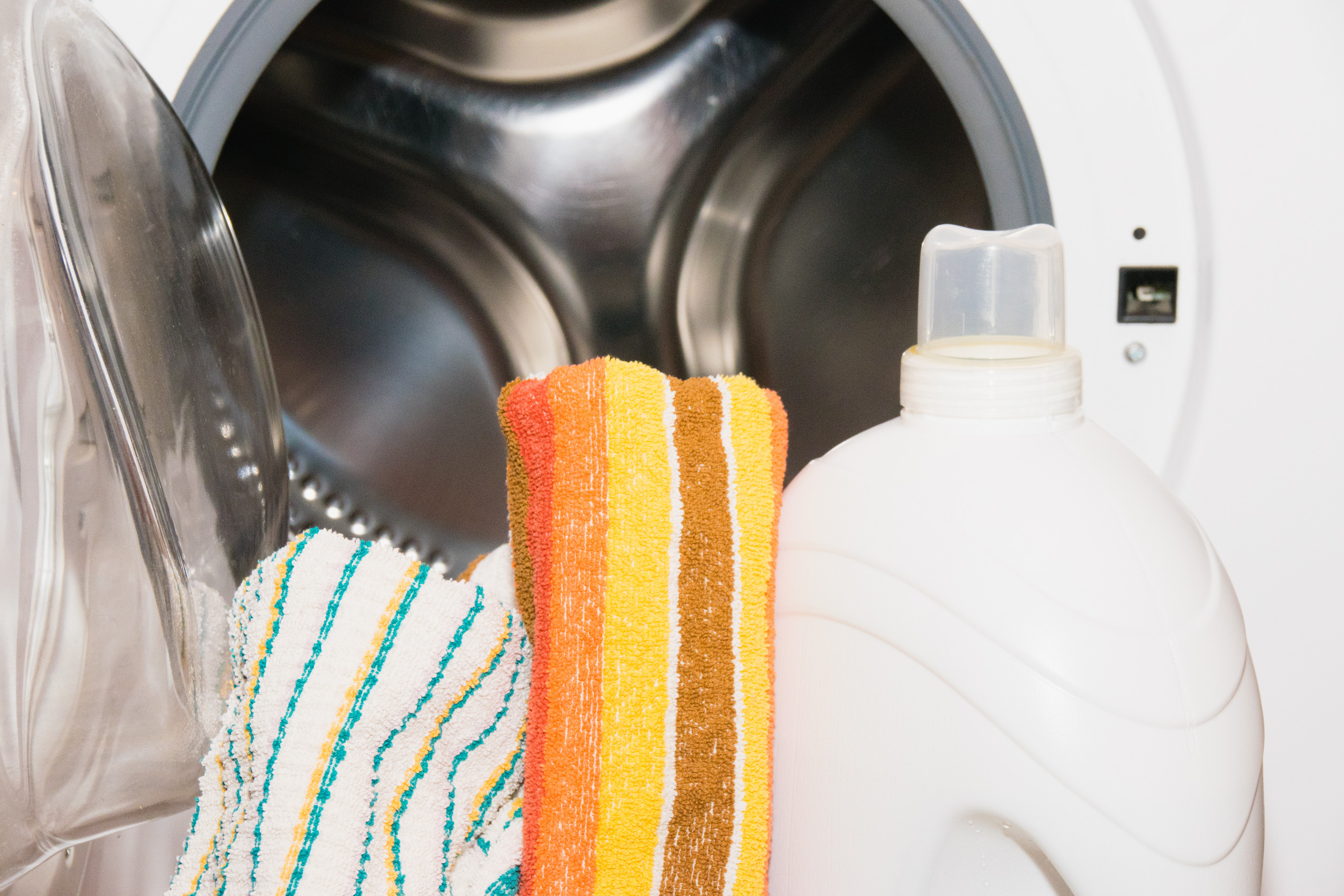
Setting up a detergents manufacturing company in the UAE presents a lucrative opportunity in a growing market. Dubai’s strategic location and business-friendly environment make it an ideal choice for entrepreneurs entering this industry. The emirate’s diverse population and thriving hospitality sector create a steady demand for cleaning products.
To establish a detergents manufacturing company in the UAE, entrepreneurs need to conduct market research, develop a business plan, obtain necessary licenses, and set up manufacturing facilities. This process involves navigating local regulations, selecting appropriate equipment, and understanding product registration requirements. The Dubai Municipality provides technical guidelines for detergent products, ensuring compliance with quality and safety standards.
The UAE soap and detergent market shows promising growth prospects, with forecasts indicating continued expansion through 2028. By leveraging this potential, manufacturers can tap into local and regional markets. Setting up operations in Dubai’s mainland allows companies to target a broad customer base and potentially expand their reach across the Middle East and beyond.
Understanding the UAE market
The UAE detergent market offers significant opportunities due to rising disposable incomes and increasing health concerns. Manufacturers must analyze demand patterns and competitive landscapes to position their products effectively.
Market research and demand analysis
The UAE soap and detergent market is projected to grow at a CAGR of 6.5% and 9.0% from 2022 to 2028. This growth is driven by expanding distribution channels and demand for environmentally friendly products. Manufacturers should focus on developing eco-friendly formulations to capture this trend.
Consumer preferences in the UAE lean towards high-quality, fragrant detergents. Premium brands with effective cleaning power and pleasant scents tend to perform well. Conducting surveys and focus groups can provide insights into local preferences and purchasing habits.
The UAE’s hot climate influences detergent formulations. Products that work well in high temperatures and address issues like sweat stains are likely to succeed. Manufacturers should also consider the diverse expatriate population when developing product lines.
Competition and pricing strategy
The UAE detergent market features a mix of international brands and local manufacturers. Major players include Unilever, Procter & Gamble, and Henkel. Local companies often compete on price and cultural relevance.
Pricing strategies should account for import costs, local production expenses, and consumer purchasing power. Premium pricing can work for high-quality or specialized products, while value brands may target price-sensitive segments.
Distribution channels include supermarkets, hypermarkets, and online platforms. E-commerce is growing rapidly in the UAE, offering opportunities for direct-to-consumer sales and targeted marketing.
Brand loyalty varies across different consumer segments. New entrants may need to invest in marketing and promotions to gain market share. Offering unique features or targeting underserved niches can help differentiate products in a competitive landscape.
Legal framework and business setup
Setting up a detergents manufacturing company in the UAE requires navigating specific legal requirements and business formation processes. Understanding the key steps and regulations is crucial for a smooth and compliant establishment.
Choosing a business structure
The Limited Liability Company (LLC) is a popular choice for detergent manufacturers in the UAE. LLCs offer asset protection and allow foreign ownership up to 49%, with a local sponsor holding the remaining 51%.
For full foreign ownership, entrepreneurs can consider Free Zone companies. These entities enjoy 100% foreign ownership and tax benefits but may face restrictions on mainland operations.
Another option is a branch office of a foreign company, which operates under the parent company’s name and liability.
Registration Process and Licenses
To register a detergent manufacturing company:
- Choose and reserve a company name
- Obtain initial approval from the Department of Economic Development
- Draft and notarize the Memorandum of Association
- Apply for a trade license
Specific licenses required include:
- Industrial license
- Environmental permit
- Product registration with the Emirates Authority for Standardization and Metrology
The process typically takes two to four weeks, and costs vary based on the business’s structure and location.
Environmental regulations and compliance
Detergent manufacturers must adhere to strict environmental regulations in the UAE. Key compliance areas include:
- Waste management and disposal
- Air quality control
- Water conservation
Companies need to implement proper chemical storage facilities and safety measures. Regular environmental impact assessments may be required.
Compliance with UAE’s Green Agenda 2030 is encouraged, promoting sustainable manufacturing practices. Adopting eco-friendly production methods can provide a competitive edge in the market.
Operational strategies
Effective operational strategies are crucial for the success of a detergents manufacturing company in the UAE. These strategies encompass facility setup, equipment selection, and supply chain management to ensure smooth production and distribution.
Location and facility setup
Choosing the right location for a detergents manufacturing facility in the UAE is essential. Industrial zones in Dubai, Abu Dhabi, or Sharjah offer suitable infrastructure and logistics support. When selecting a site, consider proximity to suppliers, transportation hubs, and target markets.
The facility layout should optimize production flow and efficiency. Design separate areas for raw material storage, mixing, packaging, and finished product warehousing. Ensure proper ventilation and temperature control to maintain product quality.
Comply with local regulations for industrial facilities, including safety measures and environmental standards. Install appropriate waste management systems to handle chemical byproducts responsibly.
Equipment and technology
Invest in high-quality equipment to ensure consistent product quality and efficient production. Essential machinery includes:
- Mixing tanks
- Blending systems
- Filling machines
- Packaging equipment
- Quality control devices
Automated systems can increase productivity and reduce labor costs. Consider implementing a Manufacturing Execution System (MES) to monitor and control production processes in real-time.
Prioritize equipment that allows for scalability as your business grows. Regular maintenance and calibration of machinery are crucial for optimal performance and longevity.
Supply chain management
Establish strong relationships with reliable suppliers of raw materials such as surfactants, fragrances, and packaging materials. Negotiate favorable terms and consider long-term contracts to secure consistent supply and pricing.
Implement inventory management systems to maintain optimal stock levels and prevent production disruptions. Just-in-time inventory practices can help reduce storage costs and minimize waste.
Develop efficient distribution channels to reach retailers and consumers. Partner with local logistics companies for timely deliveries. Consider e-commerce platforms to expand your market reach and offer direct-to-consumer sales.
Regularly evaluate your supply chain for potential improvements and cost savings. Stay informed about market trends and adjust your strategies accordingly to maintain competitiveness in the UAE detergents market.
Financial planning and management
Effective financial planning and management are crucial for the success of a detergents manufacturing company in the UAE. Careful consideration of initial investments, cost control measures, and growth strategies will help ensure long-term profitability.
Initial investment and funding
Starting a detergents manufacturing company in the UAE requires substantial upfront capital. The initial investment typically ranges from AED 500,000 to AED 2 million, depending on the scale of operations. This covers costs for equipment, facility setup, raw materials, and licensing fees.
Funding options include personal savings, bank loans, or investor partnerships. The UAE offers various financing programs for small and medium enterprises, which can be explored. It’s advisable to prepare a detailed business plan to attract potential investors or secure bank loans.
Some entrepreneurs initially opt for leasing equipment to reduce upfront costs. This approach can help conserve capital for other essential expenses like marketing and inventory.
Cost control and revenue projections
Implementing robust cost control measures is essential for maintaining profitability. Key areas to focus on include:
- Raw material sourcing: Negotiate bulk discounts with suppliers
- Production efficiency: Optimize manufacturing processes to reduce waste
- Energy consumption: Implement energy-saving measures in the facility
- Inventory management: Use just-in-time inventory systems to minimize storage costs
Revenue projections should be based on thorough market research and realistic sales forecasts. Consider factors such as:
- Market demand for different detergent types
- Pricing strategy compared to competitors
- Distribution channels and potential market reach
- Seasonal fluctuations in sales
Regular financial reviews and adjustments to projections are necessary to stay on track.
Profitability and growth planning
To ensure long-term profitability and growth, consider the following strategies:
- Product diversification: Expand product lines to cater to different market segments
- Export opportunities: Explore markets in neighboring GCC countries
- Technology investment: Adopt automation to increase production efficiency
- Quality certifications: Obtain ISO and other industry certifications to enhance credibility
Develop a five-year growth plan outlining market share, revenue, and profitability targets. This plan should include milestones for expanding production capacity, entering new markets, and potentially setting up additional facilities.
Regularly analyze financial ratios such as gross profit margin, net profit margin, and return on investment. Use these metrics to guide decision-making and identify areas for improvement.
Consider reinvesting a portion of profits into research and development to stay competitive in the dynamic detergents market.
About Worldwide Formations
Worldwide Formations is a leading corporate advisory service provider in the UAE. Established in 2008, the company has become a trusted advisor for clients from over 90 countries.
As an officially registered agent with major UAE free zones, we offer expert assistance in company setup. We tailor our approach to each client’s specific requirements.
Our services include:
- Free zone company formation
- Mainland business setup
- Offshore company establishment
- Visa support
- Second citizenship assistance
With over 10,000 clients served, Worldwide Formations has established itself as a key player in UAE business formation. Our comprehensive services aim to simplify the process of establishing and expanding business presence in the region.


